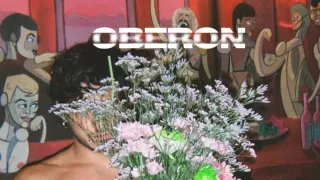
3 hours ago
“Baldwin: A Love Story” Illuminates the Queer Heart of James Baldwin in Landmark Biography
READ TIME: 3 MIN.
A sweeping new biography, “Baldwin: A Love Story” by Nicholas Boggs, published August 19, 2025, is drawing significant attention for its nuanced portrayal of James Baldwin’s personal and creative life. Billed as the first major biography of Baldwin in over three decades, Boggs’s work is being hailed as a landmark achievement—not only in literary scholarship but also in LGBTQ+ cultural history .
Boggs’s biography distinguishes itself through unprecedented access to new archival material and interviews, offering fresh insights into how Baldwin’s relationships shaped both his art and activism. The book brings to vivid life Baldwin’s connections with figures such as Beauford Delaney, Lucien Happersberger, Engin Cezzar, and Yoran Cazac—names familiar to Baldwin scholars but previously underexplored in terms of their emotional and creative significance .
For LGBTQ+ readers, “Baldwin: A Love Story” stands out for its unflinching and affirming portrayal of Baldwin’s sexuality and the centrality of queer love in his life. Boggs positions Baldwin’s many intimate relationships—whether as lovers, friends, muses, or mentors—as fundamental to his writing, activism, and sense of self. The biography resists sensationalism, focusing instead on how the structures of love, desire, and intimacy informed Baldwin’s work and worldview .
The book meticulously traces how Baldwin’s lived experience as a Black gay man shaped his literary masterpieces, including “Giovanni’s Room,” “The Fire Next Time,” “If Beale Street Could Talk,” and “Just Above My Head.” Boggs illustrates that Baldwin’s relationships were not separate from his political consciousness but rather integral to his ability to write about love, justice, and resistance in the context of systemic racism and homophobia .
A particularly compelling section examines Baldwin’s romance with Yoran Cazac and how that relationship influenced “If Beale Street Could Talk”—notably, the first of his novels to feature a female narrator and center a love story tested by a miscarriage of justice. The book also reevaluates Baldwin’s later novels, which some critics dismissed at the time, highlighting their experimental form and the depth of their engagement with familial and romantic love .
Reviewers have praised Boggs for his even-handed and critically rigorous approach, noting that the biography avoids both hagiography and salacious gossip. Instead, “Baldwin: A Love Story” is being recognized for its nuanced understanding of the inseparability of Baldwin’s public activism and private life. The Los Angeles Times calls the biography “the new gold standard for Baldwin studies,” a sentiment echoed by other major outlets .
For LGBTQ+ communities, the biography is more than a literary achievement; it is an affirmation of the complexity and beauty of queer lives in history. By centering love—in all its forms—at the heart of Baldwin’s story, Boggs’s work invites readers to engage with Baldwin not only as a writer and activist but as a deeply feeling, loving person whose legacy continues to inspire new generations .
“Baldwin: A Love Story” arrives at a time when Baldwin’s influence on contemporary literature and activism remains profound. The book’s release has sparked renewed interest in Baldwin’s novels and essays, and it is already being compared to films such as “I Am Not Your Negro” for its immersive and lyrical storytelling .
Ultimately, Boggs’s biography is a testament to the enduring power of love—not only as a personal force in Baldwin’s life, but as a vital wellspring for resistance, creativity, and change. As LGBTQ+ communities continue to seek out histories that reflect their realities, “Baldwin: A Love Story” stands as a vital and illuminating contribution.






